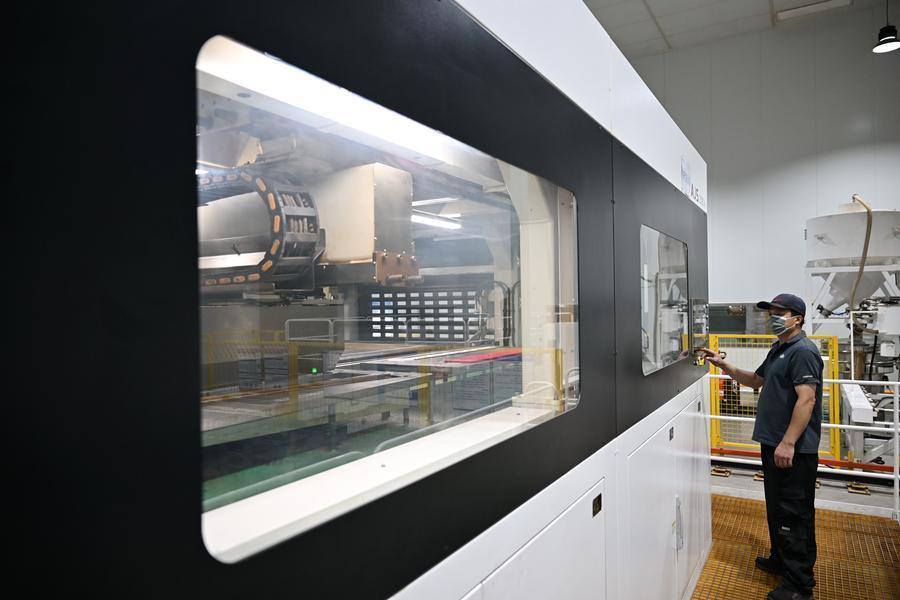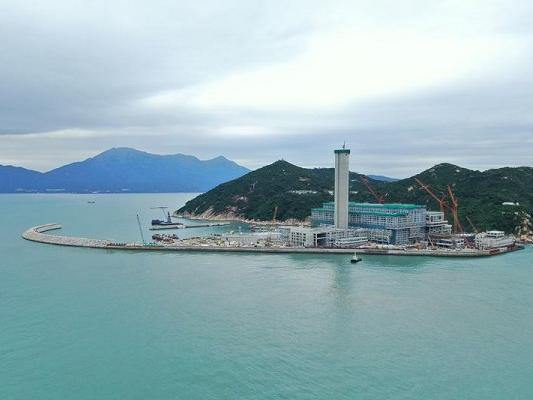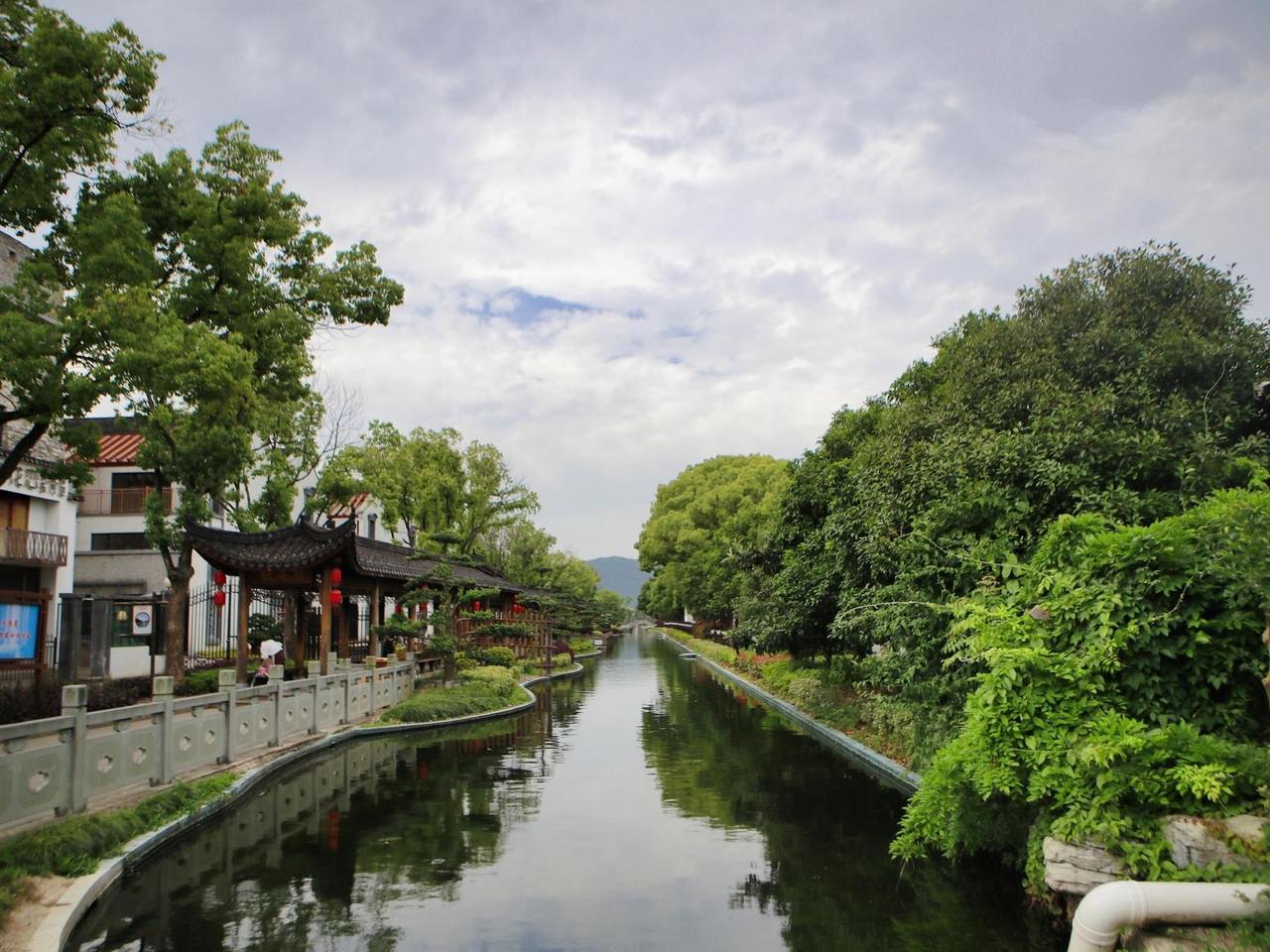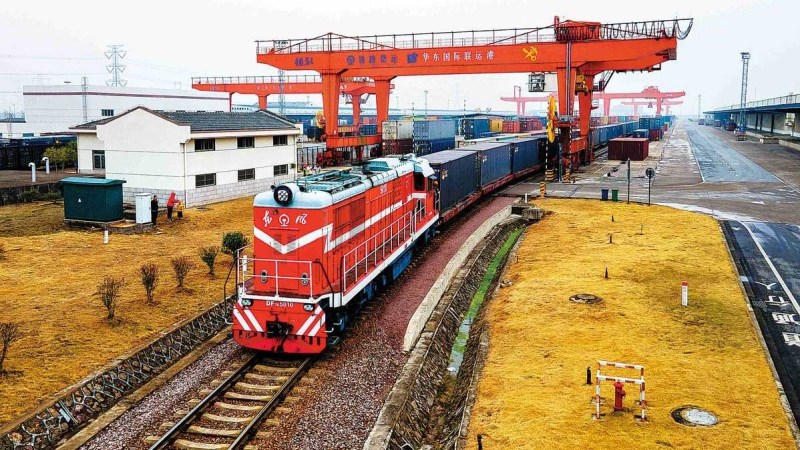
A train running for the China-Laos Railway departs from Jinhua, Zhejiang province, on Jan 16. (China Daily/ Hu Xiaofei)
World's largest small commodities supermarket in Yiwu to cash in on agreement
With the implementation of the Regional Comprehensive Economic Partnership agreement on Jan 1, numerous development opportunities at home and abroad await small and medium-sized enterprises in East China's Zhejiang province.
With the world's largest small-commodities supermarket, Zhejiang's Yiwu is expected to provide a more convenient and broader market for trade by enterprises, as RCEP promotes regional and multilateral trade integration.
Wada Taro, general manager of Yiwu Goldbach Trading Company Ltd, said his company was among the first to enjoy RCEP benefits as a recent batch of clothing, valued at $76,000, was shipped to Japan and enjoyed 3,000 yuan ($473.1) in tariff reductions and exemptions since the company received the first RCEP certificate of origin issued by the Yiwu Council for the Promotion of International Trade.
"The implementation of the RCEP agreement will be beneficial for us in the long term," he said.
Considering the advantages of Yiwu's low logistics costs and abundant supply of Chinese goods, the general manager founded the company in 2014, which now becomes a bridge to promote the continuous development of China-Japan import and export trade.
Yiwu issued the province's first local RCEP action plan stating that by 2025, the city will realize imports of more than 40 billion yuan from related countries, and realize an intermediary trade volume of 10 billion yuan. Cross-border e-commerce exports to related countries will exceed 10 billion yuan.
The city will focus on building a cross-border e-commerce model innovation centre, two-way investment promotion centre, China-Japan-South Korea free trade centre, imported goods distribution centre as well as an important regional logistics hub and economic and trade exchange platform.
"Yiwu and related countries have close exchanges in fields such as goods, warehousing and logistics, two-way investment, and people-to-people and cultural exchanges. We strive to produce a batch of landmark cooperation achievements under the RCEP agreement as soon as possible," said an official at Yiwu Municipal Bureau of Commerce, who asked not to publish his name.
Yiwu will also establish a list of key export commodities and enterprises for 2,034 kinds of export commodities whose tariffs will be reduced to zero in the first year and 2,725 kinds of export commodities with significant tariff reductions within five years, focusing on goods like electronic appliances, machinery and equipment, metal products, textiles and clothing.
At the same time, it will expand the new format of cross-border e-commerce imports from Japan and South Korea, promote the import of daily necessities and small household appliances through bonded cross-border e-commerce, and build a cross-border e-commerce distribution centre for such goods.
"The implementation of the RCEP agreement has brought us more opportunities," said Mo Yanfei, manager at Zhejiang Hengyi Petrochemical Co Ltd in Hangzhou, adding that import costs will fall for chemicals such as PTA(purified terephthalic acid) and ethylene glycol imported from Singapore, South Korea, Japan and other countries.
Meanwhile, the RCEP agreement also adds possibilities for enterprises to enhance product competitiveness, explore more overseas markets, and achieve development and growth.
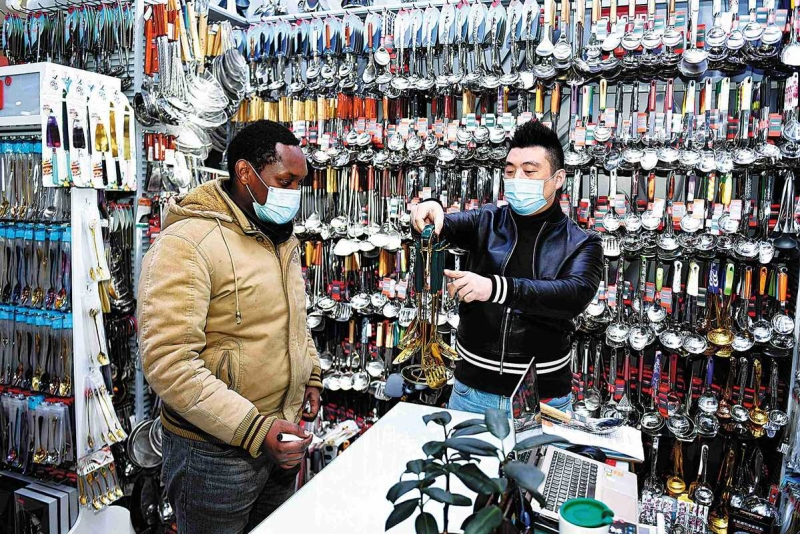
A Kenyan trader (left) purchases kitchenware at the Yiwu International Trade Market in Zhejiang province on Jan 14. (Photo/Xinhua)
Deng Chaofeng, general manager of Zhejiang International Trade Supply Chain Service Co Ltd, a local supply chain services provider, said he believes that the RCEP agreement will bring multiple benefits to the majority of local companies. For example, the six-hour clearance policy greatly improves the efficiency of Customs and helps companies seize market opportunities. Tariff reductions and exemptions can also save a lot for companies.
Aiming at the auto and motorcycle parts market, the company in 2018 built its auto and motorcycle accessories e-commerce platform, called Tokoonderdil, in Indonesia.
"We plan to upgrade the Tokoonderdil platform in the future so that it can gradually be expanded to more overseas markets," Deng said.
Ding Shufeng, dean of the Zhejiang Academy of Commerce, said the RCEP agreement will facilitate the restructuring of industrial chains of countries in the Asia-Pacific region, especially the industrial chains of China, Japan and South Korea.
For consumers in China, Deng also added that not only high-quality and cheap commodities will be available, but also more employment opportunities can be generated.
As one of the major foreign trade powerhouses, Zhejiang took the lead in releasing an action plan to seize the opportunities brought by the RCEP agreement earlier this year.
According to the plan, by 2024, trade between Zhejiang and other RCEP countries will reach 28 percent of the total foreign trade volume in Zhejiang, with investment from Zhejiang enterprises in other RCEP countries topping $10 billion.
Zhejiang has had a stable economic relationship with other RCEP member countries. Statistics show that from January to November 2021, the total trade value between the province and other RCEP member countries grew 19.4 percent year-on-year to 948.61 billion yuan, accounting for 25.2 percent of Zhejiang's total foreign trade value.
Zhejiang's exports to other RCEP member countries are mainly electromechanical, labour-intensive products and high-tech goods, while its imports from related countries are mainly resource products.
In addition to lowering tariffs, the RCEP agreement also covers more than 100 subsectors of international trade in services, including finance, telecommunications, transportation, tourism and research and development. The opening-up of international trade in services in the region is expected to become more stable.
"For the ASEAN market, Zhejiang has advantages in cross-border services such as information transmission and software and information technology, and the implementation of the RCEP agreement will further help Zhejiang's enterprises go abroad," said Zhuang Jin, an official from the Zhejiang Provincial Department of Commerce.
The RCEP agreement, which took effect at the beginning of the year, is a landmark achievement of regional cooperation and will give a strong boost to global economic recovery.
As an unparalleled, large-scale regional trade arrangement, it conforms to the interests of the 15 signatory countries, reflects their common desire to bolster economic cooperation, and demonstrates the global trend of multilateral cooperation and free trade, experts said.
Accounting for roughly 30 percent of the world's population, GDP and trade, RCEP creates the world's largest free-trade bloc by economic size, making it the biggest driver of global growth.
Editor: Li Qiaoqiao
